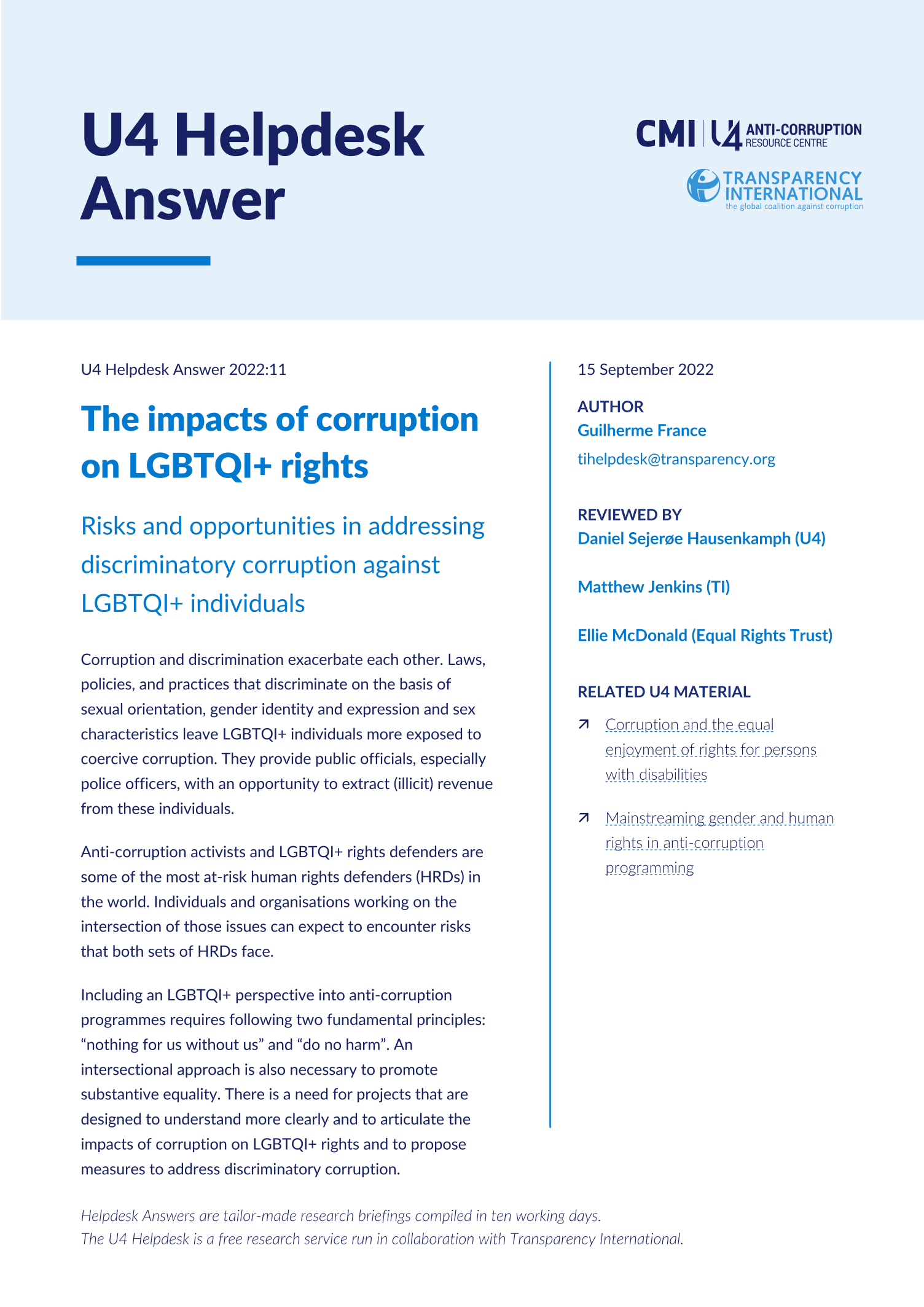Main points
- Corruption and discrimination exacerbate each other. Laws, policies and practices that discriminate on the basis of sexual orientation, gender identity and expression and sex characteristics leave LGBTQI+ individuals more exposed to coercive corruption.
- Cases of extortion or sextortion of LGBTQI+ individuals by police officers have been reported in several countries.
- LGBTQI+ people are made more dependent on public services and, as such, corruption disproportionately impacts them.
- LGBTQI+ individuals do not regularly report abuses to the police for a range of reasons, including, for example, their fear of exposure and extortion and due to systematic impunity.
- Anti-corruption activists and LGBTQI+ rights defenders are some of the most at-risk human rights defenders.
- Two principles should be followed when including an LGBTQI+ perspective into anti-corruption programming: “do no harm” and “nothing for us without us”. An intersectional approach is also necessary.


